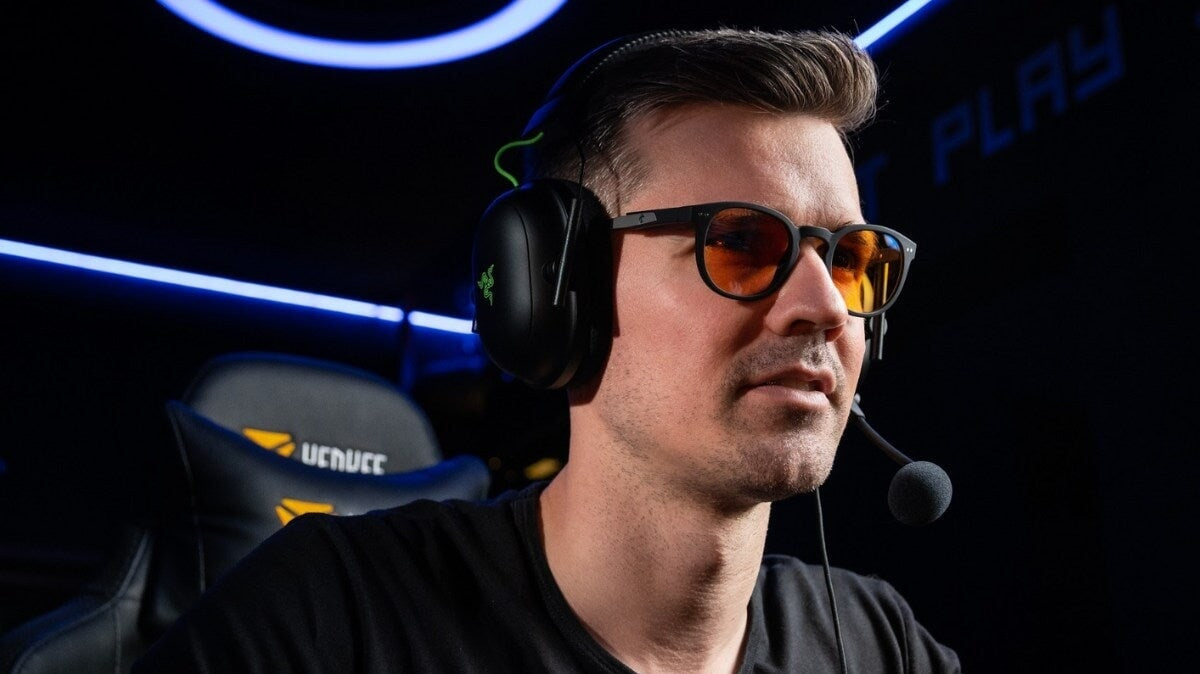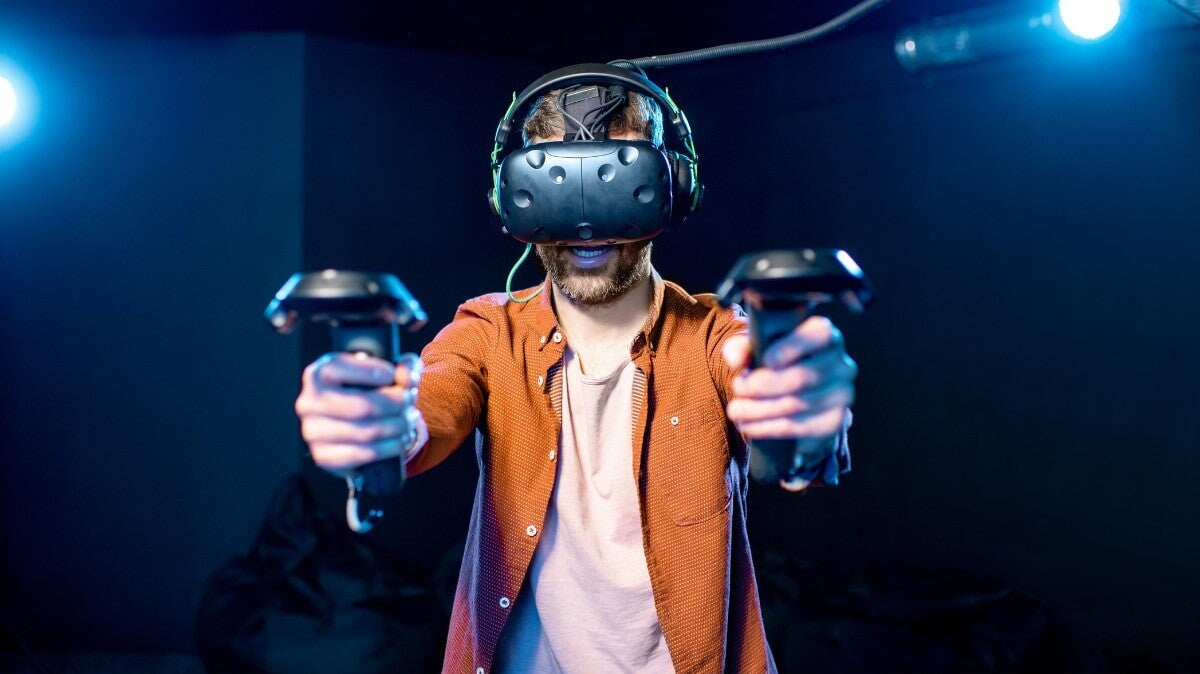Do you spend hours on end diving into the world of video games? Is your Steam library jam-packed, and is your PlayStation Plus membership worth every penny?
If you've been wondering about the impact of video games on your brain and overall health, you're in the right place. In this article we’ll parkour through the highs and dive through the lows of being a gamer and the impact it can have on your health.
Plus, we’ve got some great tips to help you maintain a healthy gaming lifestyle. So, grab your controller and gaming glasses, and let’s take a look.
Gaming is your superpower: What abilities it gives you
Mostly people hear negative things about video games and their players. This is largely down to the age-old (incorrect) belief that video games are a waste of time. We’re here to tell you that’s not true. Gaming has a ton of positive effects and can actually really help your brain function, turning regular ordinary abilities into superpowers.
Gaming gives you improved cognitive function
💽 Gaming upgrades your working memory

Working memory is what allows you to temporarily store information and process it accordingly. But did you know that our working memory actually improves when we play video games; whether that’s Spyro or Skyrim.
For example: playing The Legend of Zelda: Tears of the Kingdom
When you’re not busy torturing Koroks by turning them into rotisserie machines, Tears of the Kingdom asks you to retain information such as item locations, exploration points and useful strategies for defeating enemies.
👉 Working memory is thus very much in demand here are you have to retain all this information and adapt it to a way that’s useful for each different situation.
Thanks to video games constantly exercising our working memory muscles, our brains adapt and grow stronger, just like if you were exercising any other type of muscle!
Playing games strengthens the connection between neurons, improving communication across different areas of the brain.
You can learn more about the results from studies on gaming and working memory here.
🙆♂️Gaming boosts your cognitive flexibility

Video games might not increase our ability to move more quickly in real life, but it they do let your brain speed up when switching from one task to another. That’s because video games improve your cognitive speed and functioning, helping you become a thought chameleon!
In particular real-time strategy games, RPGs or even MOBA’s are helpful in developing these skills. That’s because they rely on you juggling different missions, managing resources, interacting with multiple characters, and developing strategies in order to progress and beat the hardest enemies.
In Fallout 4 for example, you have to manage resources across multiple settlements, negotiate and befriend multiple factions, as well as developing strategies for defeating enemies and juggling different missions across the game’s map.
That means our brains need to be experts at multi-tasking and improving cognitive skill. By regularly playing, the impact of these video games on the brain is extremely beneficial, helping it to better handle changing and complex situations.
👉 This skill is essential to face daily challenges, whether in our professional or personal life.
🆙 Video games help you gain XP in problem-solving

Strategy, adventure, and puzzle games help develop your problem-solving skills.
In these games, we’re often faced with challenges and puzzles that require thinking, logic, creativity and a good dose of patience to figure out. Just like in Resident Evil when every gamer’s logic is put to the test as you wander through hallways looking for puzzle pieces.
These types of games help train your brain in how to analyze situations, identify obstacles and think both laterally and strategically.
👉 These skills are invaluable in dealing with real-life difficulties and finding effective solutions.
Gaming improves visual-spatial skills
If you’ve picked up the lightsaber mantel as Cal Kestis in Jedi Survivor, or ducked, dodged and rolled your way to success in the Soulsborne games then you’re helping to improve your reflexes and hand-eye coordination.
👀Gaming positively impacts visual perception

Genres like first-person shooters (FPS’) or racing games require you to keep an eye on multiple, fast-moving elements simultaneously.
These games train your brain to become more sensitive to visual stimuli and quickly process that information to make informed decisions before you get sniped by someone in Call of Duty.
👉 This improvement in visual perception can also be useful in our daily lives, helping us to identify important elements more quickly or to anticipate the actions of others. Real world applications can include driving a car, motorcycling or taking part in sports (tennis, table tennis and other ball games, for example).
So, you no longer need to tell your partner you’re off to play Modern Warfare 2. Instead, just say you’re off to “sharpen you brain and visual perception skills”!
🫡 Gaming levels up your hand-eye coordination skills

When you play games like Street Fighter 6, Tekken 8 or Mortal Kombat 1 (let’s be honest, you’re getting one of these three games), you’re performing complex actions by synchronizing your movements with visual information presented to you.
This allows precise coordination between the eyes, which pick up the visual information, and the hands, which perform the movements necessary to kick Chung-Li’s ass…. I mean to win the game.
👉 You don't realize it, but you’re training your brain to remember key combinations and coordinate your eyes and hands! This is also the case with platform games like Super Mario: you have to jump at the right moment, anticipate, press more or less hard to go further etc.
🧭 Gaming gives you special-navigation XP

With adventure, racing or action video games you often have to deal with complex maps and 3D environments.
When exploring these virtual worlds you need to learn to find your way around, memorizing routes and using landmarks to orient yourself.
Luckily RPGs tend to do this for you given the size of their maps, but some games ask you to explore, giving no real help or direction (like The Last Guardian which also wants you to employ logical and critical-thinking skills to work out puzzles and determine your route).
👉 This is particularly helpful for improving the navigation skills of the directionally-challenged. For example, it can help you get around when you go to a city you don't know.
Gaming has positive effects on emotional well-being
The impact of video games on the brain can be really positive, but these skills aren’t the only thing it affects. Did you know gaming actually has a positive impact on our emotional well-being?
🧘♀️ Gaming reduces stress

A lot of people use gaming as a way to relax and destress after a difficult day at work or school.
By immersing yourself in the problems of Hyrule, you can temporarily forget your real life worries and focus on just having fun.
💪Gaming improves self-esteem

Video games can help boost our self-esteem as they give us challenges to complete and goals to achieve. Of course, that only works when you succeed!
But as you progress through games and overcome obstacles you develop a sense of competence and accomplishment, which helps you to feel more confident and prouder of yourself.
👯♀️ Gaming can strengthen social ties

IF you’re a social gamer, it can be a great way to stay in touch with friends, improve your communication skills, and bond over shared experiences… unless you’re playing Overcooked.
Gaming with friends, online or locally lets you collaborate to achieve common goals and helps develop your mutual aid skills.
The negative impact of video games on the brain
Sadly, it’s not all sunshine and roses. Given that games still involve you staring at a screen and absorbing wavelengths of blue light for a long period of time, there is still such a thing as too much gaming.
While it has undeniable benefits and a positive impact on your brain function, gaming can also negatively impact our mental and cognitive health. Too much gaming and you’ll lose health quicker than against Elden Ring’s Malenia.
There are some negative consequences to bear in mind.
🤪Video game addiction is real

It’s sadly very easy and possible to develop video game addiction. While playing can be fun and rewarding, it’s crucial to stay aware of how much time you’re spending playing and not overdo it.
Video game addiction is a complex phenomenon, which can be linked to a variety of different factors. Some examples include the gratification in the search for rewards, the desire to escape from reality, or the feeling of control and power that certain games provide.
👉 When you spend too much time playing and this activity takes precedence over other important aspects of life, such as social relationships, studies or work, then it can be classed as an addiction.
This is one way in which video games can impact the brain negatively, as they can literally cause it to restructure its reward functions, adapting to the overstimulation of it through games.
🤬Gaming can cause violent and aggressive behavior

Don’t worry we’re not going to jump on the bandwagon and blame video games for people committing atrocious acts of violence.
However, it is something that has been looked at in depth across multiple studies, and so far, results have been inconclusive and contradictory. There are some violent games that delight in gore, or are disturbingly real in their portrayal of it (most often in war games like Battlefield or Counter Strike). But how they impact real life faculties is less clear.
👉 Some research has shown that exposure to a violent video game can increase aggression and violent behavior in gamers.
👉 However, the validity of that is in question. Other studies, notably that of Joe Hilgard who reanalyzes the above study and A. Anderson’s results, showing significant biases in the material, have refuted this saying the impact of video games on the brain can depend on many other factors. It’s wrong to solely blame video games for someone being aggressive or violent, as the personality of the player and their susceptibility to these emotions needs to be taken into account.
We advise you to pay attention to how the games you play make you feel and if they have a negative effect.
If you find that certain games make you more irritable or aggressive, it may be a good idea to take a step back and choose games that are more suited top your demeanor.
P.S: We also recommend daily meditation as a great way to improve concentration and help you to destress.
Gaming can cause physical health issues

Sadly, video games can also impact your physical health. Thanks to the sedentary nature of gaming and the fatigue they can cause, game’s can actually change your body… and not for the better.
👤Gaming leads to physical inactivity and obesity
Spending long hours sitting in front of a screen while video gaming can lead to excessive sedentary behavior. This is a risk factor for obesity and other health problems, such as cardiovascular disease or diabetes.
It’s also not helped by the fact we’re more likely to eat junk food in front of screens or eat quickly, without taking the time to chew, swallow and digest our food properly. Usually this kind of food is high in fat, salt and other bad-for-you substances that long-term can lead to health issues.
That’s why we recommend a healthy gamer’s diet to keep you running as fast as Sonic the Hedgehog.
🦴Gaming can cause musculoskeletal disorders
Playing video games for long periods of time without taking a break can cause pain and musculoskeletal disorders, such as carpal tunnel syndrome, tendinitis or muscle tension in the neck and shoulders.
These problems can occur due to the repetitive movements of controller hitting, or unsuitable postures during the game. This is particularly the case when you do not have the right gaming chair, the right position on your chair, or the wrong adjustment of the screen.
😴Gaming can cause visual fatigue and sleep disorders
The intensive practice of video games can cause visual fatigue and sleep disorders over time.
Prolonged screen exposure, particularly before bed, can disrupt the production of the sleep hormone, melatonin. This will lead to difficulties with falling asleep, staying asleep and how well you asleep when you do manage to doze off.
That’s because we’re overexposing our eyes to the dangers of blue light, keeping us awake at all hours.
Focusing on the moving parts of big games close to bed time is not conducive to sleep. Rather than your brain shutting down, its still running a million miles an hour trying to figure out how to win one last big boss battle before bed.
How to protect yourself from the negative impacts of gaming: Horus X’s advice
Fortunately, there are solutions so that video games do not interfere with your life (too much). By following our advice, you will be able to benefit from the positive effects of playing games while preserving your body and mind. In a word: BALANCE!
Moderate your consumption of video games
Self-control is key.
Set yourself time limits – either in how long you plan to game for or the number of games/matches you can face before you have to take a break.
For example, in short, battle-royale based conflicts, such as on Fortnite or Call of Duty, you can limit yourself to 3 games before you have to take a break.
This can be harder for the RPG and long, story-driven narrative lovers amongst us. But we promise Geralt will still be waiting for you when you return.
Breaks also need to be long enough for your brain to get out of the game and back to regularly working order, but how long this takes can be down to the individual.
Wear blue light blocking glasses
One of the problems with heavy screen use is overexposure to blue light, which can cause eyestrain and disrupt sleep.
To protect yourself from this, you can use blue light blocking glasses specially designed to filter out this harmful light.
Blue light blocking glasses feature special lenses that absorb the harmful spectrum of blue light, helping to reduce eyestrain and improve comfort when using screens for long periods of time, such as when you play video games.
By wearing blue light blocking glasses you are lessening the impact of video games on the brain and helping prevent:
🫣 Eye fatigue: By filtering blue light, glasses help reduce eye fatigue and associated problems, such as headaches, dry, or stinging eyes.
💤 Sleep loss: Blue light can disrupt the production of melatonin, the sleep hormone, and lead to difficulty falling asleep, poor quality sleep or nocturnal awakenings. By wearing blue light blocking glasses, you can preserve your sleep cycle and promote restful sleep.
🧐 Visual disturbances: Prolonged exposure to blue light has been associated with an increased risk of developing visual disturbances, such as AMD. Wearing blue light blocking glasses can help reduce this risk.
Horus X caters to every type of blue light blocking requirement. We have blue light blocking glasses for gaming, and those who work as digital professionals, spending most of the day in front of screens.
We’ve also developed our very own market-leading Horus X technology that’s revolutionizing the world of blue light glasses.
Exercise more!
I can hear the sighs and complaints from here. But you know it anyway: exercise is good for you!
Try and find an activity that will get you moving and help negate or avoid the musculoskeletal problems that gaming can otherwise end up giving you.
If you’re not into sports you can always just go for a 30-minute walk (steal a friend’s pet for this), and make sure you’re stretching out your muscles every morning and evening, or during breaks from video games.
Go outside and talk to people
Solo video games can lead to a bit of an isolated lifestyle if you let it take over too much.
Multiplayer games encourage social connection and communication, allowing you to find communities within your favorite titles.
Video games should be played in moderation: Final thoughts
The impact of video games on the brain and body can’t be discounted – both the positive and the negative. They undeniably offer many benefits in terms of cognitive development, emotional well-being and even socialization.
However, it is essential to keep in mind that, as with everything, excess can lead to problems such as addiction, aggression or physical health problems.
So go ahead and play, make sure to have fun, but consider the negative effects video games can have on you.















